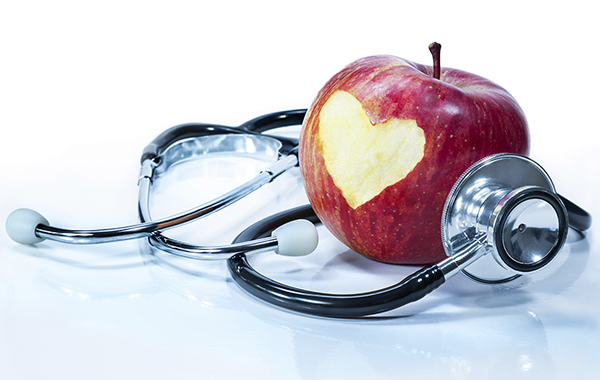Maintain a healthy heart by lowering your cholesterol
November 3, 2022Categories: Blog Posts
Tags: Nutrition
 Heart disease continues to be a leading cause of death for men and women in the United States. Simple lifestyle changes can help improve your heart health and lower cholesterol.
Heart disease continues to be a leading cause of death for men and women in the United States. Simple lifestyle changes can help improve your heart health and lower cholesterol.
It’s important to consume a healthy, well-balanced diet filled with protein, carbohydrates, and fat, all while watching your cholesterol levels. High cholesterol can contribute to heart attacks and strokes. To better understand how to improve your health, let’s review the two types of lipoproteins: high-density and low-density.
Low-density lipoprotein (LDL) cholesterol, known as “bad cholesterol,” creates plaque in the arteries. Heart attacks and strokes can occur due to plaque clogging the arteries. Saturated and trans fats increase your level of LDL.
Saturated fat is found primarily in red meat and full-fat dairy products. Examples include:
- Fatty meat
- Poultry skin
- Bacon and sausage
- Whole milk
- Butter
Trans fat, listed on food labels as “partially hydrogenated vegetable oil,” is often used in store-bought, processed items. These fats increase cholesterol levels overall. Examples include:
- Margarine
- Fried foods
- Packaged foods (e.g., potato chips)
- Baked goods
High-density lipoprotein (HDL) cholesterol, described as “good cholesterol,” is believed to help flush LDL out of the system. Consuming foods rich in monounsaturated and polyunsaturated fats contribute to higher HDL. Examples include:
- Nuts and seeds
- Avocados
- Olive oil
- Fish
Altering your diet to include more cholesterol-friendly food can help improve your heart health. As discussed, be aware of the types of fats you consume, but here are a few more tips and suggestions:
- Eat foods rich in omega-3 fatty acids. These foods do not affect LDL cholesterol but have other heart-healthy benefits, such as reducing blood pressure. Examples include salmon, walnuts, and flaxseeds.
- Increase soluble fiber consumption. Soluble fiber can lower your LDL cholesterol. Food high in soluble fiber include oatmeal, kidney beans, brussels sprouts, apples.
- Exercise can improve cholesterol levels. Moderate physical activity can help raise high-density lipoprotein (HDL) cholesterol. 30 minutes of exercise per day is recommended.
- Choose low-fat or non-fat dairy products.
Daniel J. Vile, DO, is an interventional cardiologist, a specialist who treats coronary and congenital heart disease using minimally invasive nonsurgical techniques. His office can be reached at 215.516.6830.
